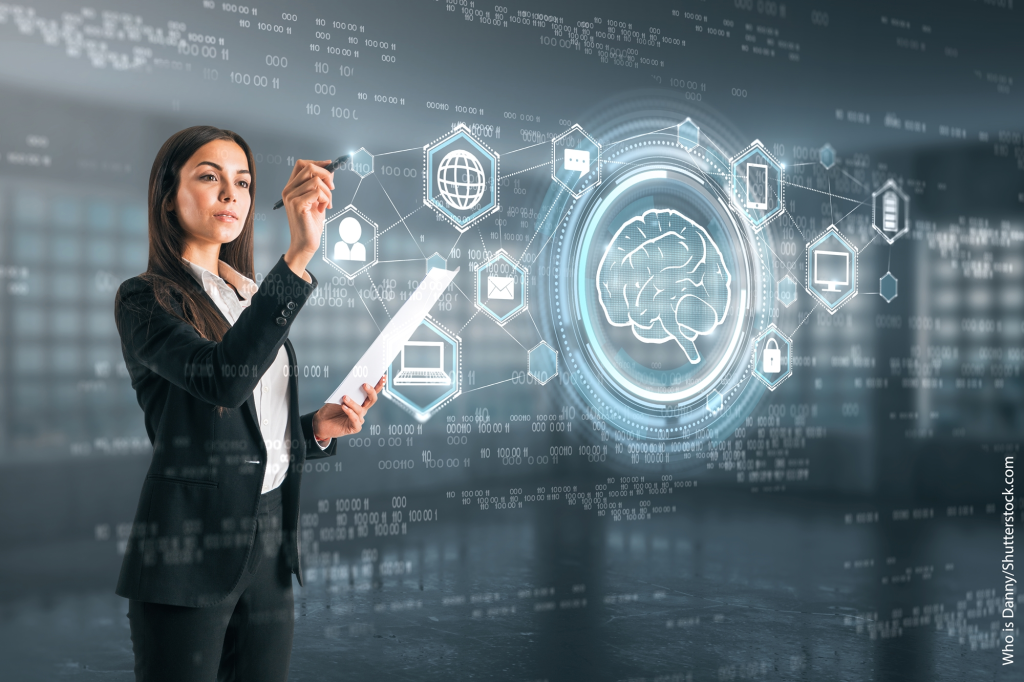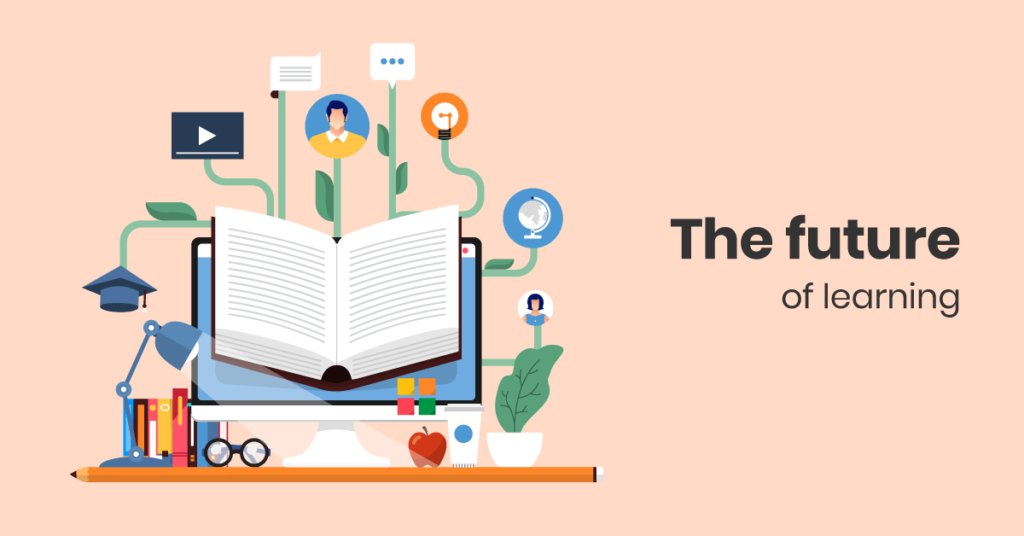The very essence of learning is undergoing a fantastic transformation. Driven by the transformative ability of artificial intelligence (AI) and machine learning (ML), the traditional landscape of education is evolving rapidly. These advanced technologies hold immense potential to revolutionize learning methods, create personalized experiences, and ultimately empower individuals to reach their full potential. This article explores the exciting possibilities of AI and ML in shaping the Future of Learning, fostering effective learning environments, and ensuring quality education for all.
AI in Action: Powering Personalized Learning Inside the Future of Learning
AI is remodeling schooling with the aid of introducing modern tactics, shaping the destiny of gaining knowledge via personalized experiences:
Personalized Learning Paths: AI algorithms examine scholarly information, consisting of studying patterns and past overall performance, to create individualized knowledge of paths. This guarantees students get hold of content and fosters deeper understanding and engagement within the destiny of mastering.
Intelligent Tutors: Virtual tutors assist students by addressing their unique needs, providing tailored guidance, and ultimately enhancing their learning journey. In addition, AI-powered tutors provide college students with individualized assistance and feedback.
Adaptive Learning Platforms: These structures leverage AI to dynamically modify the issue and content of mastering materials based on scholar performance. This ensures students are adequately challenged without feeling beaten, resulting in a more effective and enjoyable future in acquiring knowledge.
Machine Learning: Empowering Educators

Machine studying (ML) algorithms are not simply remodeling the manner students research but also empowering educators to customize practice and improve learning results, shaping the destiny of gaining knowledge of:
Predictive Analytics for Early Intervention: ML models can analyze student data to predict their performance and identify potential learning difficulties. Early intervention by educators allows for targeted support and promotes academic success in the future of learning.
Automated Grading and Personalized Feedback: ML can automate tedious duties like grading essays and a couple of questions, freeing up precious educator time. Additionally, ML can examine scholar responses and generate customized feedback, allowing educators to offer particular steerage and address character scholar desires greater successfully, personalizing education in the future of gaining knowledge.
Content Creation and Personalized Learning Pathways: ML algorithms can create personalized learning materials, tailored to character student needs and gain knowledge of styles. Moreover, ML can curate relevant content from diverse resources, developing personalized mastering pathways that cater to each scholar’s pursuits and learning desires, paving the way for a more destiny-oriented getting-to-know to enjoy.
Machine learning empowers students to take ownership of their learning journeys, and future-proofed learning experience for all.
The Future of Learning: A Landscape Transformed through AI and ML – Benefits and Challenges
Integrating AI and ML into the future of gaining knowledge holds monstrous potential, offering a multitude of blessings:
Increased Accessibility and Inclusivity: AI can tailor coaching to every pupil’s unique necessities and gain knowledge of preferences, considering their strengths and shortcomings. This promotes a greater diverse learning surroundings in which every pupil may be successful.
Improved Student Engagement and Motivation: AI and ML can enhance college students’ engagement and motivation by tailoring mastering stories to each learner’s interests and requirements. This may additionally bring about a lifetime love of analyzing, more advantageous academic success, and a deeper comprehension.
Empowering Educators: AI can unfasten up instructors’ time from time-ingesting chores like administrative work and grading. Teachers can now focus on building personalized relationships with students, providing tailored advice, and fostering an engaging learning environment.
Despite the exciting opportunities, it is crucial to address renowned capability challenges.
Ethical Considerations: Biases in algorithms and facts privacy worries require cautious interest to make certain accountable and moral implementation of AI in schooling. Mitigating capability biases and safeguarding scholar records privacy are paramount.
Teacher Training and Support: Educators require proper schooling and help to efficiently incorporate AI equipment into their coaching practices and adjust their coaching methods to a more AI-driven mastering environment. This ensures that humans can use technology successfully while remaining important to the getting-to-know process.
Bridging the Digital Divide: Consequently, to ensure that each college student has honest entry to this generation and AI-powered knowledge opportunities, it is imperative to cope with the digital divide. Initiatives are required to close the distance and ensure that no student is left behind in the future of learning.
We can leverage AI and ML’s significant potential by addressing challenging situations and ensuring accountable implementation, thereby creating a personalized, enticing, and accessible destiny for all.


